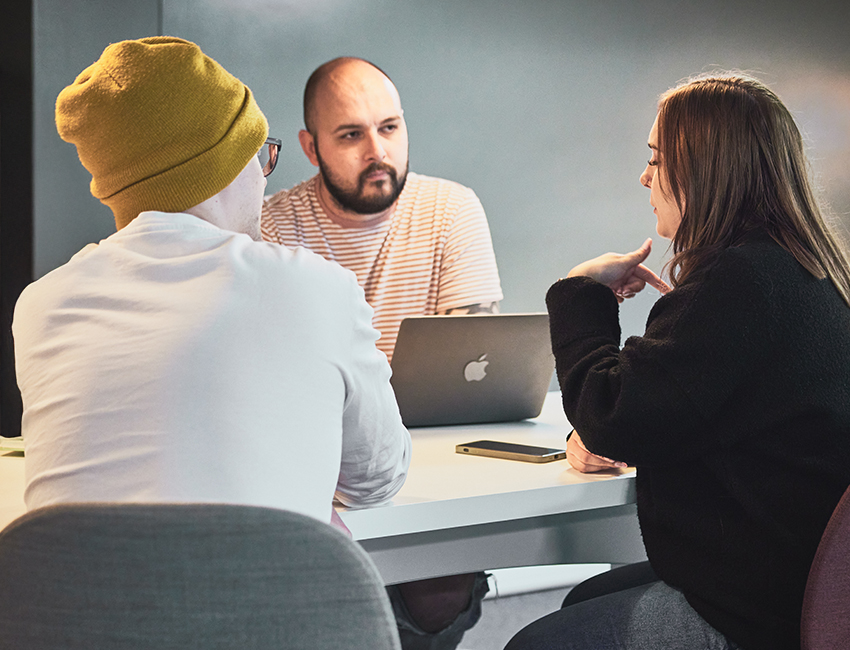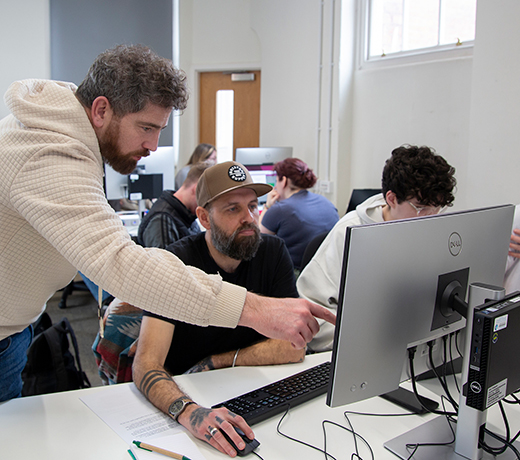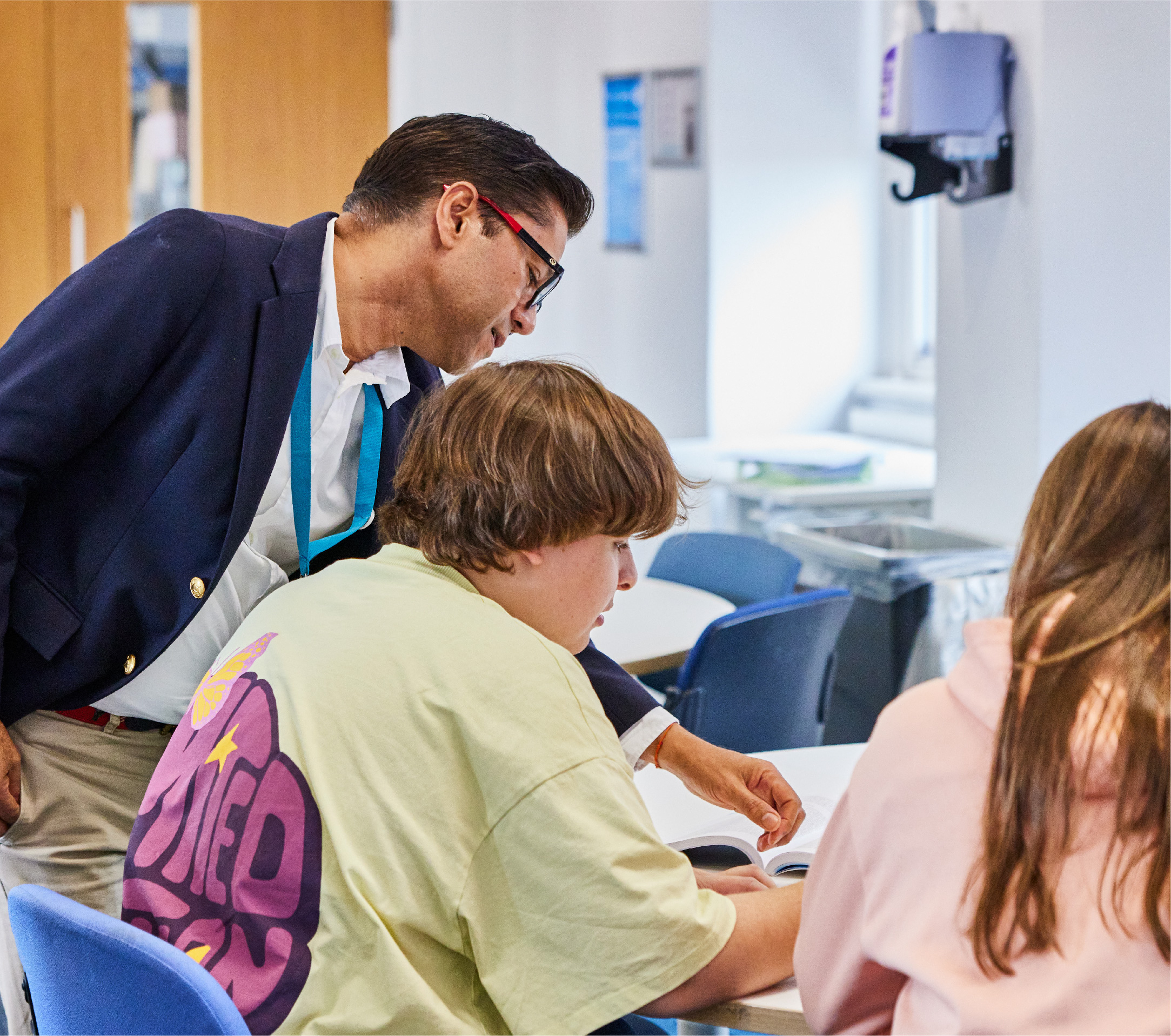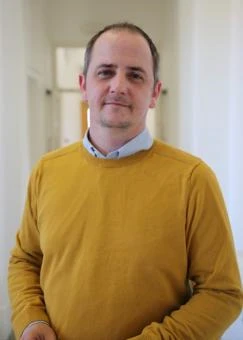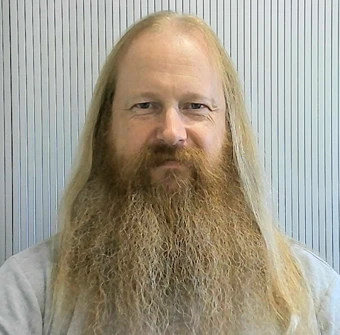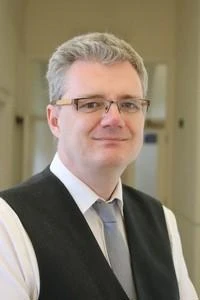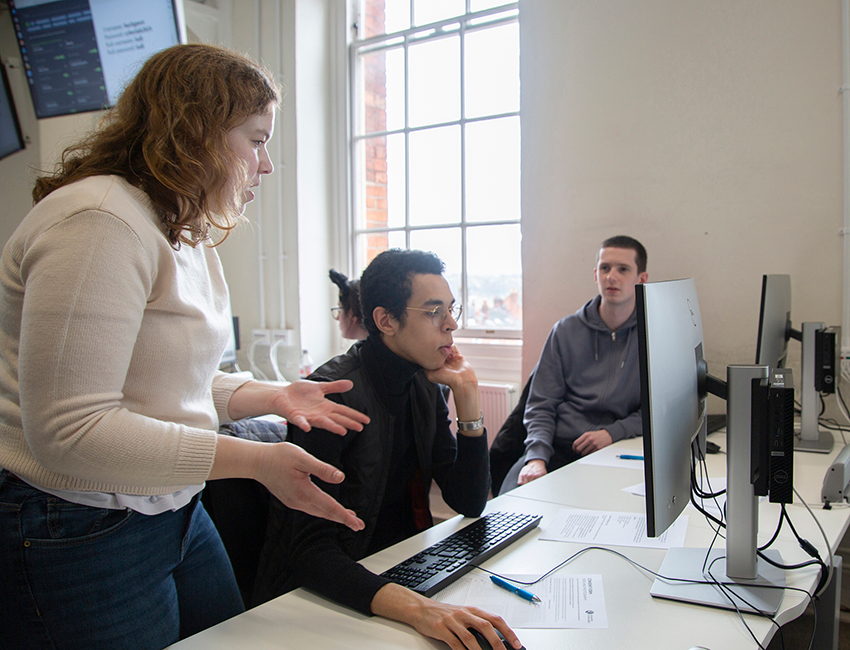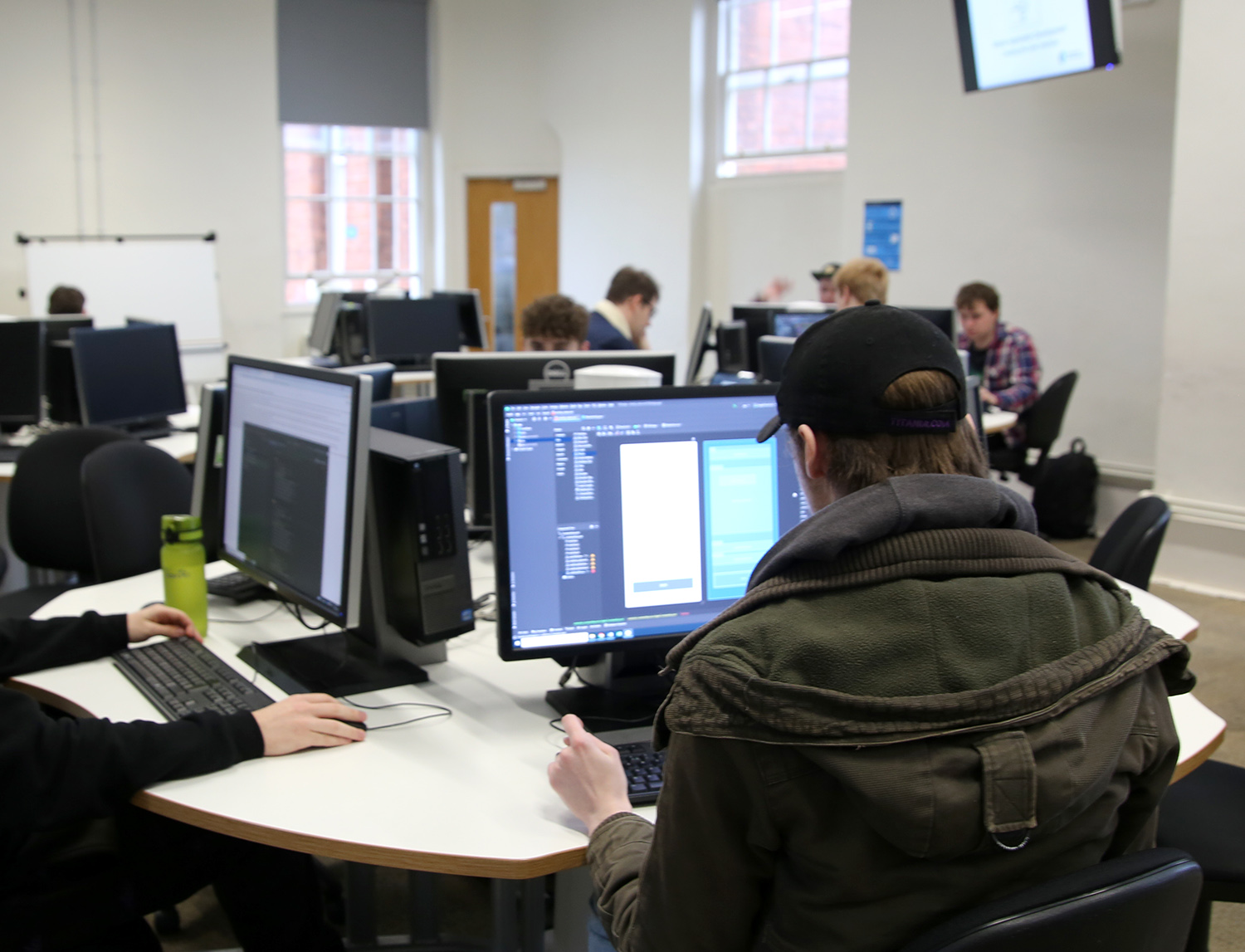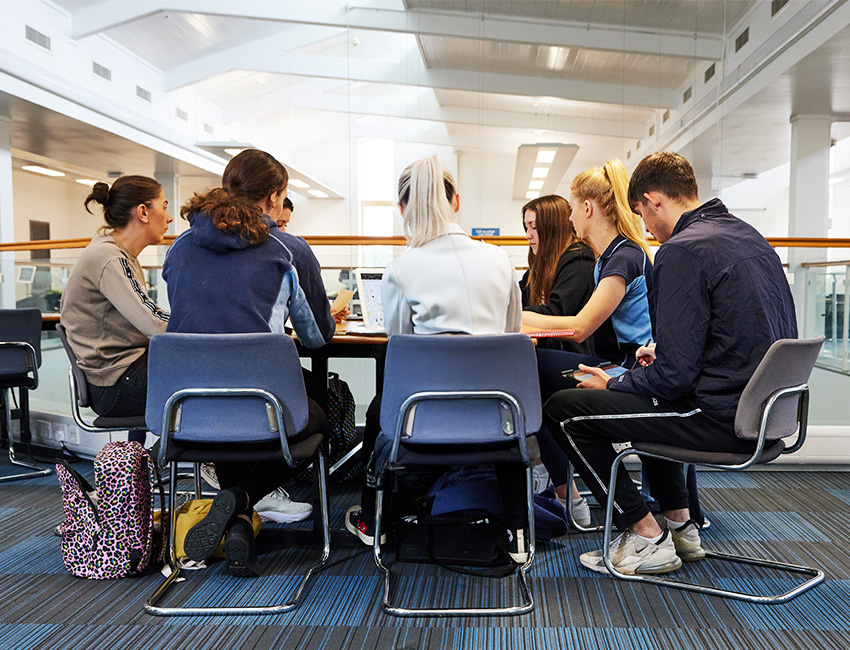This course offers the opportunity to gain real-world experience and expand your professional network through a paid year-long internship, helping you build confidence, sharpen your skills and stand out in a competitive job market.
for student experience
for teaching quality
University of the Year finalist
Recognised for our graduate success, we’re shortlisted for University of the Year in the Times Higher Education Awards 2025.
Overview
Artificial Intelligence is transforming the way we live, work, and interact with technology. From self-driving cars to intelligent healthcare systems, AI is at the forefront of innovation. Our course is designed to give you the technical expertise and creative problem-solving skills to thrive in this rapidly evolving field.
You’ll build a strong foundation in AI principles, including machine learning, neural networks, natural language processing, and robotics. Unlike a general computing degree, this course focuses specifically on how intelligent systems are designed, developed, and applied to real-world challenges. You’ll explore ethical considerations, data-driven decision-making, and the role of AI in shaping the future.
Throughout your studies, you’ll gain practical experience through hands-on projects and industry-standard tools, guided by those who have worked in the industry. Many modules include mini-projects in areas such as mathematical modelling and data analysis, while some offer the chance to achieve professional qualifications alongside your degree. You’ll also develop transferable skills in using specialist software, conducting research, and communicating effectively. By the time you graduate, you’ll be equipped to design intelligent, creative solutions that make a real impact.
Placements
You’ll have multiple opportunities to apply your learning through consultancy projects, short-term placements, or a year-long paid internship. Previous students have secured placements with companies such as Bosch, IBM and Clearview. Our dedicated placements team will support you with applications, interview preparation, and connecting with employers. You can choose to work locally, nationally, or even internationally.
Course content
Modules are mandatory in this course, as it has been carefully designed to progress your skills and experience year on year, so you can feel confident in the industry.
We regularly review our courses to reflect the latest research and developments in the subject area, as well as feedback from students, employers and the wider sector. As a result, modules may change to ensure the course remains current and relevant.
Careers
Our course has been created with your employability in mind, equipping you with the skills and confidence to be successful in this rapidly growing industry. You’ll graduate with skills working with data, application development and machine learning which are highly valued across many industries.
With expert guidance from our careers advisors and possible placement experience, this degree could be your first step towards becoming:
- AI engineer
- Machine learning specialist
- Cyber security Analyst
- IT Project Manager
- Digital Product Owner
- Systems Analyst
- Web or UX Designer
- Network Engineer
Postgraduate study
You could choose to progress onto a postgraduate degree to take your learning even further. For example our Computing MSc or Artificial Intelligence MSc.
You could also train to teach with a one-year Primary or Secondary PGCE at Worcester.
Course highlights
Teaching and assessment
Our Artificial Intelligence degree has been created in collaboration with leading academics and industry experts to ensure you graduate with the skills employers demand. From day one, you’ll explore the principles that underpin AI while gaining insight into how these technologies are transforming sectors.
Learning is hands-on and interactive. You’ll combine practical projects with seminars, lectures, and one-to-one support, giving you the confidence to apply your knowledge in real-world scenarios.
Teaching and assessment contents
You will be taught through a combination of interactive workshops, lectures, seminars, laboratory practical sessions, practical activities, etc. Some examples include:
- Interactive workshops take a variety of formats and are intended to enable the application of learning through discussion and small group activities and can incorporate short lectures, worksheets and tutor-supported activities.
- Flipped lectures where lecture content and activities are provided prior to an interactive workshop to provide background and context to the sessions.
- Seminars enable the discussion and development of understanding of topics covered in lectures, and laboratory practical sessions are focused on developing subject-specific skills and applied individual and group project work.
We also make use of real-world case studies, oral presentations, mock examinations, hands on experience working with contemporary data analytic tools and programming environments, guest speaker inputs, and self-directed research. You do not merely learn in isolation and using the university's Virtual Learning Environment allows for online collaborative activities to take place.
In addition, meetings with personal academic tutors are scheduled on at least four occasions during your first year.
The University places emphasis on enabling students to develop independent learning capabilities that will equip you for lifelong learning and future employment, as well as academic achievement. A mixture of independent study, teaching and academic support from Student Services and Library Services, and also the personal academic tutoring system enables you to reflect on progress and build up a profile of skills, achievements and experiences that will help you to flourish and be successful.
Meet the team
Here are a few of the Business School staff members who teach on this course.
Entry requirements
UCAS tariff points required: 104
| Qualification | Grade |
|---|---|
| A-level | BCC |
| BTEC National Extended Diploma | DMM |
| T-level | Merit |
We do accept Access to HE Diplomas and other qualifications which may not exactly match the combinations above. Work out your estimated points with the UCAS tariff calculator.
Any questions?
If you have any questions about entry requirements, please call our Admissions Office on 01905 855111 or email admissions@worc.ac.uk.
Fees
Fees contents
UK and EU students
In 2026/27 the standard fee for full-time home and EU undergraduate students on BA/BSc/LLB degrees and FdA/FdSc degrees is £9,790 per year.
Tuition fees are reviewed annually and may increase each year for both new and continuing students.
For more details on course fees, please visit our course fees page.
International students
In 2026/27 the standard tuition fee for full-time international students enrolling on BA/BSc/LLB degrees and FdA/FdSc degrees is £17,200 per year.
Tuition fees are reviewed annually and may increase each year for both new and continuing students.
For more details on course fees, please visit our course fees page.
How to apply
How to apply contents
Applying through UCAS
UCAS is the central organisation through which applications are processed for full-time undergraduate courses in the UK.
Read our how to apply pages for more information on the application process, or if you’d like to apply for part-time study.
Contact
If you have any questions, please get in touch. We're here to help you every step of the way.
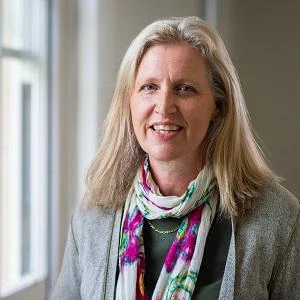
Admissions Office
admissions@worc.ac.uk01905 855111More to explore
Open Days
Visiting us is the best way to get a feel for student life at the University of Worcester.

The City of Worcester
Worcester is a welcoming university city with great transport links and plenty of student parking.

Accommodation
Benefit from our accommodation guarantee. We have rooms on campus to suit every budget including en-suite options.

